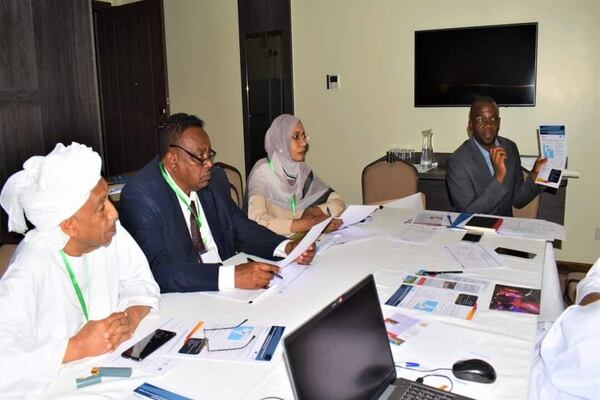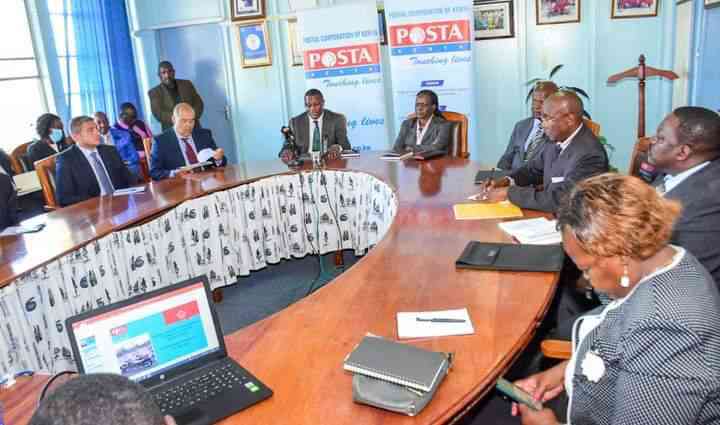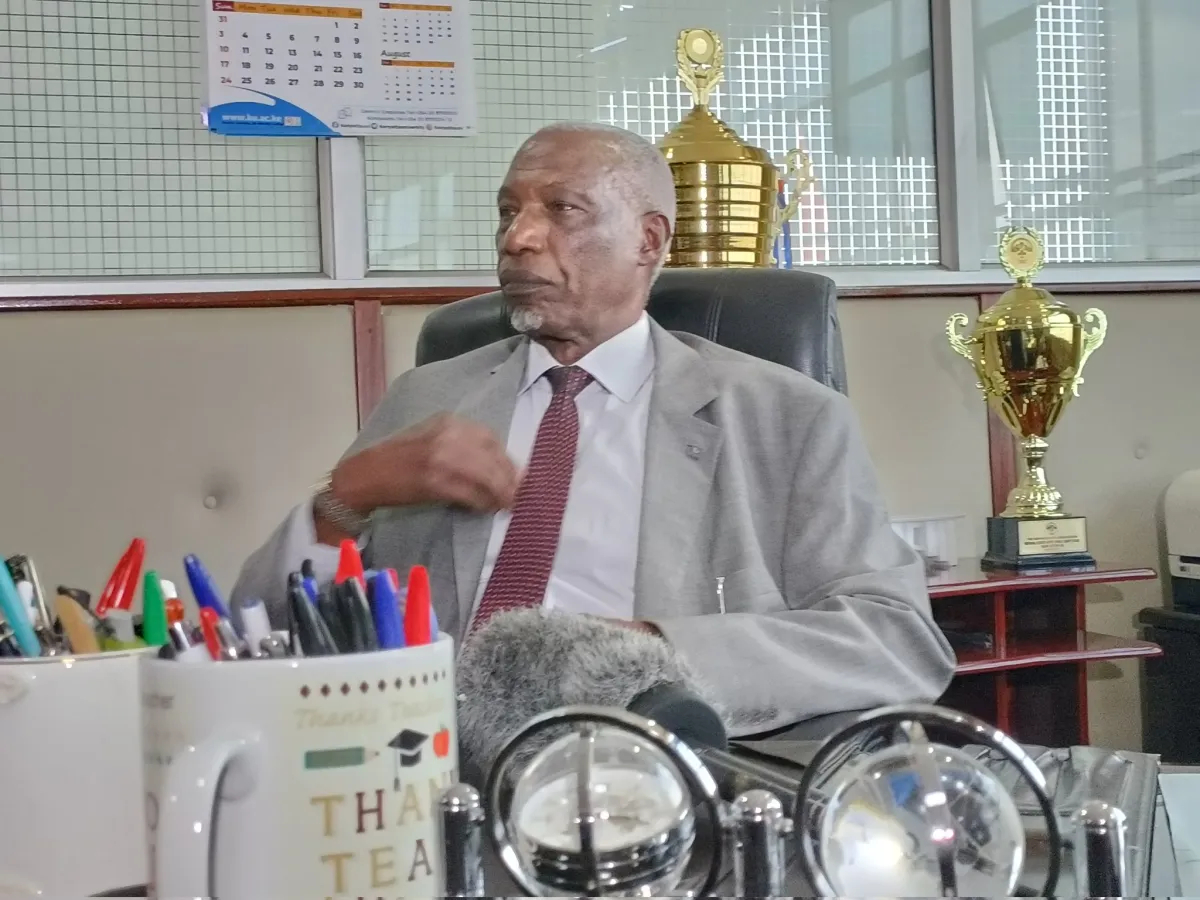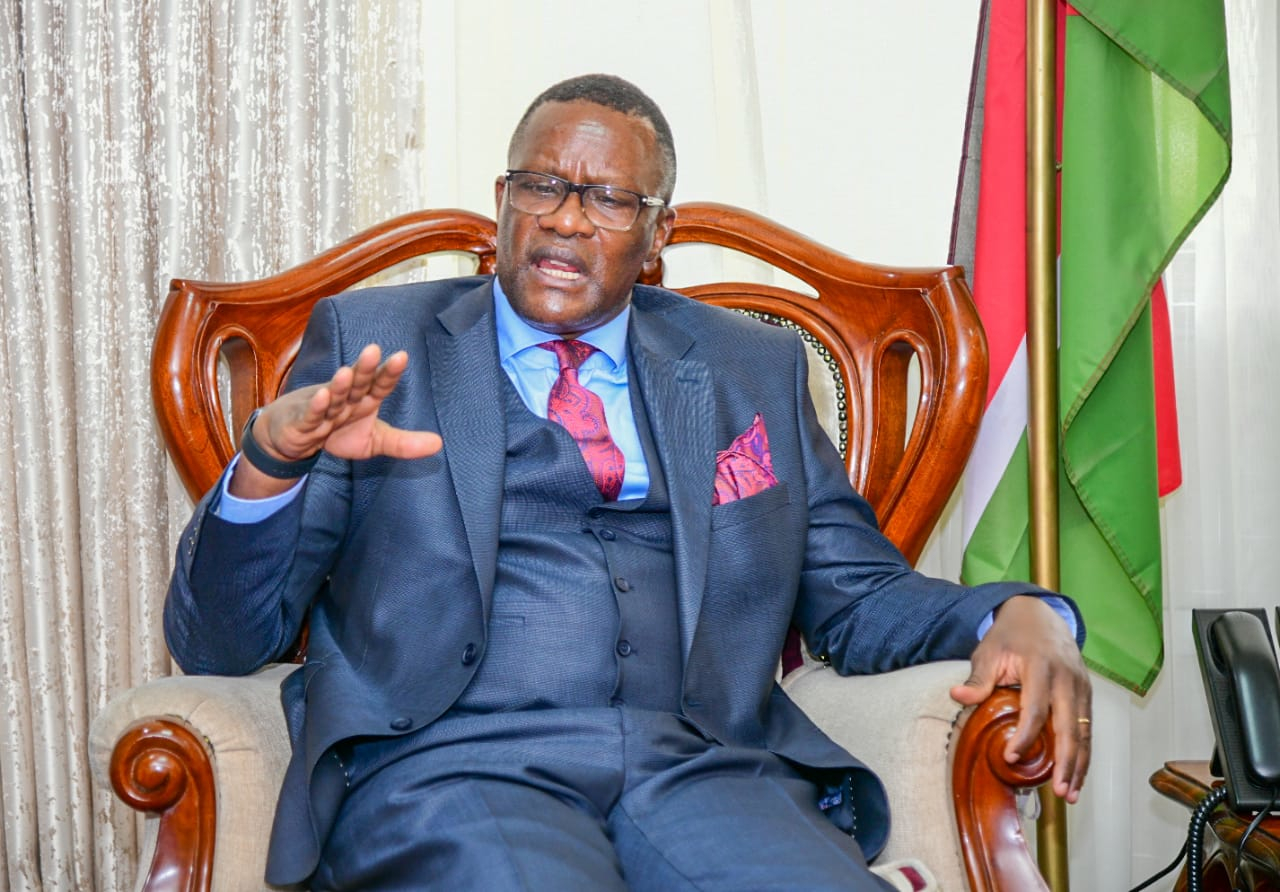
Kenya Farmers To Gain From Climate Smart Water Management Project
Kenya is among four countries in the Africa region to benefit from Ksh. 1 billion the Climate Smart Water Management and Sustainable Development for Food and Agriculture in East Africa (WATDEV) Project.
The Project that is geared to build sustainability of agricultural water management and resilience of agro-ecosystems will see over two million smallholder farmers in the East African Region benefit from the Ksh1 billion(7.5 million Euros) funding that guarantee climate smart efficient water production and management.
The WATDEV project is also being implemented in three other countries in the region, Egypt, Ethiopia and Sudan.
During a two day Multi-actor WATDEV project multi-actors regional meeting at a Nairobi hotel, State Agriculture Principal Secretary Kello Harsama said that Kenya focuses on increased agricultural production in specific agro-ecologies including the WATDEV project site at the lower Tana River basin, despite the challenges within the ecosystem.
In a speech read on his behalf by Dr. Joseph Maina, the Director Research and Innovation at the Ministry of Agriculture, the PS said the implementation of the project is being spearheaded by the Kenya Agricultural and Livestock Research Organization (KALRO).
“ The government welcomes the project initiatives of attaining the goal of food and nutrition security through implementation of Best Management Practice (BMP) and the involvement of the local stakeholders that will enhance sustainability beyond the project”, Harsama said .
During the meeting, agriculture players heard that scarcity or limited availability of water resources and climate conditions severely comprises agricultural production and food security in many of the regional countries.

Association for Strengthening Agricultural Research in Eastern and Central Africa (ASARECA) Executive Director Dr. Enock Warinda said Kenya has made strides in terms of development of water best management practices and also registered its farmers thus standing a better chance of assisting in access and efficient use of water.
“Kenya, Ethiopia, Egypt and Sudan score poorly on the human development index, there is therefore a need to improve water and oil management and agricultural production methods”, he said.
Dr. Warinda added that the WATDEV will collect, analyze, implement available best practices and innovations in study areas and simulate their impact scenarios with the use of models and knowledge accumulated in regional water studies.
He explained that the increase and sustainability of agricultural water management in the project will be achieved through national ministries and research institutions improving knowledge and management on water in Agriculture and also by implementation of innovations, sustainable solutions and skills on water management by farmers and local actors.
KALRO Director General Dr. Eliud Kireger said that in Kenya the WATDEV project is working with other relevant stakeholders including National and County Government, farmers’ associations, extension services, integrated water resources users’ association, and Non-Governmental organizations.
Dr. Michael Okoti, Assistant Director in charge of environment sustainability and climate change research at KALRO and lead of the project in Kenya said the bura/Hola irrigation project was started one year ago
“The Tana River ecosystem has the potential to contribute to food security although it also has challenges that need to be addressed such as the nutrient and water insufficiency, ” he said.
The main focus on the intervention domains that will address the BMP, Dr. Okoti said will be on agroforestry because of the soil management and heat load within the irrigation scheme and the second one will be strengthening of water.
He added that they will also intervene on crop varieties such as rice and coffee which are doing well in the area and advance the same because of the commercial aspects of the two value chains.
“We want to start the real interventions on the ground, and on rice and cotton, trials have already been done and the community has already embraced the two value chains that we need to advance focusing on the BMP that is agro forestry and water resources governance”, he said .
Dr. Okoti added that they are working with a group of farmers and hoping to reach 1500 farmers within the irrigation scheme and the number can also grow depending on adoption of technologies and that is part of the whole initiative. Dr. Okoti said.
The meeting is co-hosted by ASARECA and KALRO in close collaboration with Italian based intergovernmental organization, the International Centre for Advanced Mediterranean Agronomic Studies (CIHEAM-BARI).









